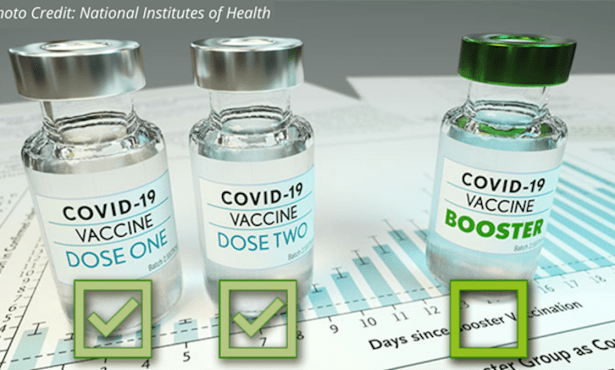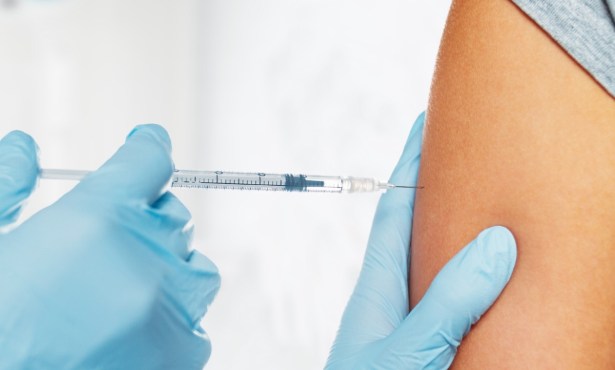More Myths about the COVID-19 Vaccine
One of the most critical steps we can take to re-open our communities is to be vaccinated when it is our turn. Some have expressed fear of getting vaccinated and unfortunately, misinformation about the COVID-19 vaccine has contributed to that fear. Here are 10 myths with accurate information to help you feel comfortable getting vaccinated.
Myth #1: COVID-19 vaccines were ‘rushed’ so they could still be unsafe.
While it is true that the COVID-19 vaccine was produced relatively quickly, it, does not mean scientists and researchers skipped critical steps. Rather, drug manufacturers and the government removed many of the bureaucratic inefficiencies that typically slow the process. No corners were cut in the trials and the results were remarkable.
The Centers for Disease Control and Prevention and the Food and Drug Administration are continuing to monitor COVID-19 vaccine safety as the vaccines are distributed.
So far, serious vaccine reactions have been occurring at a rate of 4.5 in 1 million doses given. This is very comparable to other vaccines. Of note: none of the severe allergic reactions were deadly and all recovered quickly. No death after receipt of the vaccine could be attributed to the vaccine but only to an expected prognosis in otherwise ill persons.
Myth #2: You can get COVID-19 from the vaccine.
The vaccines that have been approved for use in the United States do NOT contain the live virus that causes COVID-19, which means it is simply not possible to get sick with COVID-19 as a result. Getting a headache, chills or a short-lived fever or feeling fatigued for 1-2 days after getting vaccinated is a normal reaction and a sign that the body’s immune system is getting activated by the vaccine to be able to fight the virus. Short lived soreness at the injection site is also quite common but not dangerous.
Myth #3: Santa Barbara County is receiving fewer vaccines than other counties.
The number of disproportionately impacted communities, settings, and populations may differ among counties, thereby affecting the formula used to determine the State’s allocation of vaccine to the county. Bigger counties also tend to have more large clinic/hospital systems that may get extra allocations of vaccine.
Myth #4: The vaccines can change your DNA.
The approved coronavirus vaccines use messenger RNA, or mRNA. This technology teaches the body’s cells to make a harmless piece of the “spike protein” found on the surface of the SARS-CoV-2 virus. This triggers an immune response that produces antibodies, protecting against COVID-19 infection. This messenger RNA stays in the outer part of our cell, called the cytoplasm. It doesn’t enter into the nucleus of the cell, so it does not have access to our DNA.
Myth #5: The COVID-19 vaccines can cause infertility.
This claim has absolutely no scientific evidence. It was promulgated by social media platforms of the anti-vaxx movement. It was also a story line in a popular TV series Utopia, however completely fictional.
Getting vaccinated is important for pregnant women and those who are planning to become pregnant in order to protect mom/parents and baby from COVID-19.
Myth #6: You don’t have to get vaccinated if you’ve already had COVID-19.
The CDC says anyone who has had COVID-19 and recovered (and otherwise qualifies for vaccination) should be offered the vaccine. New mutations of the virus are causing variants that may re-infect persons who had the original virus previously. Also, the vaccine causes a more robust immune response than the actual disease. It is recommended to get vaccinated even if you had COVID-19.
Myth #7: Once you’ve been vaccinated, you can no longer spread the virus.
It’s not yet clear whether the vaccines prevent individuals from spreading the virus to others. That means it’s possible that a fully vaccinated person might be exposed to the coronavirus, become infected without any outward symptoms, and then pass the virus along. Therefore, it is crucial that public health measures like mask-wearing, hand-washing and social distancing remain in place, even after obtaining the two-dose vaccination.
Myth #8: Severe reactions to the COVID-19 vaccines are common.
There have been cases of severe allergic reactions to the vaccine but the chances of getting the virus is much higher. While these reactions are alarming, the occurrence is quite rare at 4.5 per 1 Million vaccinations and comparable to other vaccines. Also, every occurrence in the USA had a good outcome and quick recovery with typical medical treatment.
Myth #9: You should wait until you can choose the exact type of vaccine you’d like.
There is no significant difference between the Pfizer and the Moderna vaccines and both behave identically. The third available vaccine is by Janssen (Johnson & Johnson) and it has some advantages over the previous ones: requires one shot only to be fully vaccinated, has fewer side effects.
All clinics, pharmacies and hospitals are very transparent with which vaccine is available and people have the options to pick one over another.
Myth #10: I don’t need the vaccine; this will all just go away soon.
Unfortunately, the SARS-CoV-2 virus that causes COVID-19 is here to stay. The most effective way to protect your health and that of our community is to get vaccinated when it is your turn.
You may sign up for vaccine email updates and information from the county here.
These next few weeks will be a time of transition for vaccine distribution. Santa Barbara County will be switching to a new sign-up platform MyTurn.ca.govand to the new State-run distribution process through Blue Shield. Both will come into effect for Santa Barbara County sometime after March 31.
For more information about local public health orders, guidance, and vaccine distribution in Santa Barbara County, please visit: https://publichealthsbc.org/


